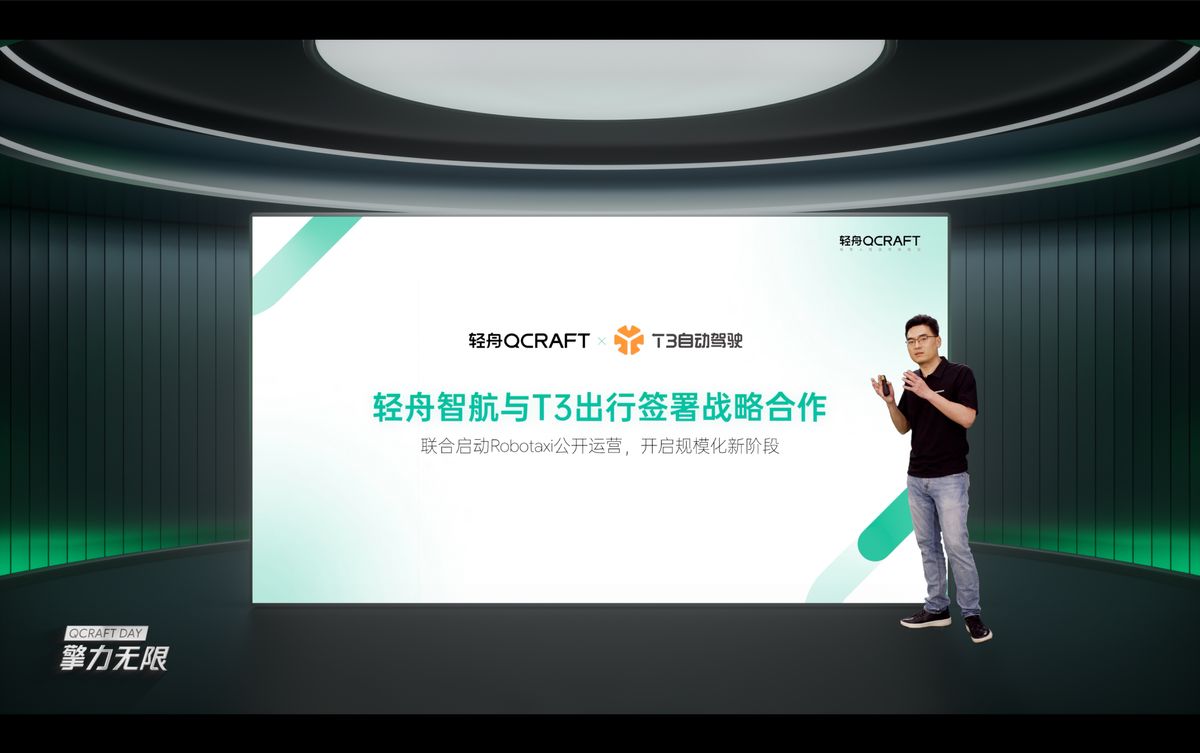Qcraft, a Chinese autonomous driving startup, said at a Wednesday conference that it is partnering with ride-hailing firm T3 to bring self-driving vehicles onto the latter’s ride-share network in the eastern city of Suzhou. T3 users within the range of those vehicles’ routes will soon be able to select one for a ride.
Why it matters: The partnership is the latest example of driverless tech firms rushing to work with more consumer-facing companies as they aim to commercialize autonomous driving tech.
Details: Starting from July, Qcraft and T3 will begin offering rides to public passengers using self-driving cars within a restricted area in Suzhou, a neighboring city of Shanghai, where the companies are already testing the vehicles.
- The initial phase of the pilot deployment is expected to allow the companies to fine-tune their robotaxi offering by collecting rider feedback and improving user experience ahead of a commercial launch, according to an announcement (in Chinese).
- On Wednesday, Qcraft also announced plans to test its self-driving system for consumer cars beginning in the third quarter of this year, collaborating with Chinese chipmaker Horizon Robotics. Backed by leading tech companies Meituan and ByteDance, the three-year-old Qcraft is testing a fleet of more than 100 autonomous mini-buses and sedans in around 10 major Chinese cities.
- T3 has emerged as a significant rival to Didi and is backed by state auto majors FAW, Dongfeng, and Changan. The ride-hailer completes over 3 million rides every day with operations in more than 80 Chinese cities, its vice president Li Jinfeng told reporters at a press briefing on Wednesday. To compare, Didi reportedly provided 20 million trips per day in January.
Context: Other Chinese self-driving car companies are racing to launch commercial autonomous ride-share services either by themselves or with partners.
- Baidu began operating fully autonomous taxis in the suburbs of Beijing in late April, a few months after being allowed to charge customers fares for rides in the capital city. The tech giant said it had offered around 213,000 rides in eight domestic cities in the fourth quarter of 2021.
- Self-driving unicorns Pony.ai and WeRide have turned to ride-hailing service OnTime for a wider group of users, recently participating in its RMB 1 billion ($153 million) Series A, TechCrunch reported on April 27. Operating in the southern Guangdong province, OnTime was launched by state-owned automaker GAC in mid-2019 and backed by Tencent.

